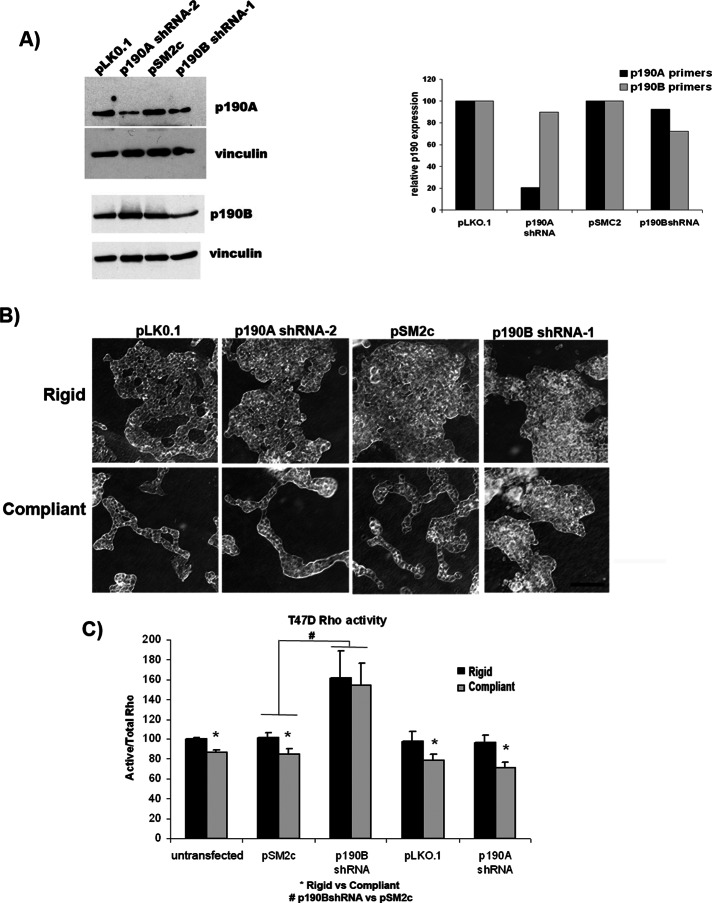FIGURE 1:
p190RhoGAP-B, but not p190RhoGAP-A, mediates Rho regulation and morphogenesis in compliant collagen gels. (A) Of the shRNAs producing knockdown (two for p190A and four for p190B, characterized in Supplemental Figures S1 and S2), we chose p190A-2 and p190B-1 for all subsequent experiments, based on stability of knockdown and the compatibility of these particular vectors for FRET experiments. p190RhoGAP-A– or B–specific knockdown in T47D cells was confirmed by real-time PCR. Primers specific for either p190A or p190B were used to determine the levels of cDNA in T47D cells stably transfected with control vectors, pLK0.1 or pSM2c, or shRNA constructs, p190A-2 and p190B-1. Isoform-specific knockdown was also determined by Western blot analysis using p190B- and p190A-specific antibodies. Vinculin was used as a loading control. (B) T47D cells expressing p190A or p190B shRNA or the appropriate vector control plasmids (pLK0.1 and pSM2c, respectively) were cultured in attached (rigid) or floating (compliant) 1.3 mg/ml collagen gels for 10 d. Phase contrast images show disruption of normal tubulogenesis in floating gels only when p190RhoGAP-B is knocked down (scale bar, 100 μm). (C) RhoA activity was measured by G-LISA in T47D cells cultured in compliant vs. rigid collagen gels. Active RhoA levels were normalized to total RhoA in each sample (determined by Western blot with RhoA-specific antibodies). In untransfected T47D, vector control (pSM2c and pLK0.1) cells and p190A shRNA–expressing cells, RhoA activity is significantly decreased in compliant vs. rigid gels (*rigid vs. compliant: untransfected, p = 0.0001; pSM2c, p = 0.0226; pLK0.1, p = 0.0453; p190A shRNA, p = 0.0254. n = 5). RhoA activity is no longer regulated by matrix compliance and is elevated in both rigid and compliant gels when p190B is knocked down (#p190B vs. pSM2c vector controls: rigid, p = 0.0450; compliant, p = 0.0110. n = 5).

